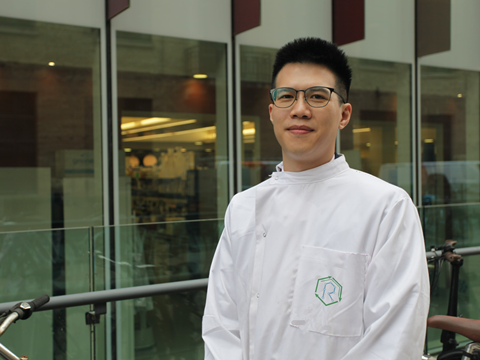
Repolywise, a start-up founded by Oxford University researchers, has announced the development of its ‘Atomic Scissors’ technology, which uses a hydrocracking process to break down waste plastics at the atomic level.
The technology is supported by £375,000 in grants from Innovate UK, and in its current lab-scale capacity, the technology has apparently demonstrated the ‘efficient, selective, and high yielding’ degradation of assorted samples of polyolefins. The start-up says the Atomic Scissors process converts plastic waste into propane in a one-step process. This propane is then sold to the petrochemical industry where it is dehydrogenated or cracked into olefins before being used in the production of new polyolefins, such as polyethylene (PE) and polypropylene (PP).
This approach hopes to help reduce plastic waste and support the circular economy by creating valuable raw materials for new plastic products. Repolywise states that polyolefin plastics account for approximately 50% of the 330 billion kilograms of plastics produced globally each year.
It adds that these types of plastics are challenging to recycle using conventional methods, often leading to downcycling into lower-quality materials. The Atomic Scissors solution hopes to offer a way to recycle these materials back into high-quality polypropylene, ready for reuse in the production of new plastic products.
Apparently, the current lab-scale is a 2 gramme batch process and will be increased to 2 kilogrammes in the next phase of development. Following further funding, Repolywise plans to achieve a commercial-scale capacity of 2 tonnes in a semi-flow process, working towards industrial application.
The company is also working towards obtaining ISCC certification to validate its mass balance approach and ensure the sustainability of its processes.
In related news, Kalpana Systems received a €3.5 million investment from SIG InnoVentures, Fairtree Elevant Ventures and the Energy Transition Fund Rotterdam in July to help bring its spatial Atomic Layer Deposition (sALD) technology to the market. The technology can be used to apply ultra-thin layers for applications such as solar panels, batteries and packaging.
Last month, a new chemical process developed at the University of California, Berkeley, claimed to ‘essentially vaporize’ polyethylene, polypropylene, and mixed-plastic waste into building blocks for repolymerization into new plastics. This catalytic process is set to reduce the fossil fuels required to make new plastics and unlock circularity for various single-use plastics, including clear PET water bottles.
If you liked this story, you might also enjoy:
The ultimate guide to the Packaging and Packaging Waste Regulation in 2024
How are the top brands progressing on packaging sustainability?
Sustainable Innovation Report 2024: Current trends and future priorities
Everything you need to know about global plastic sustainability regulation














No comments yet